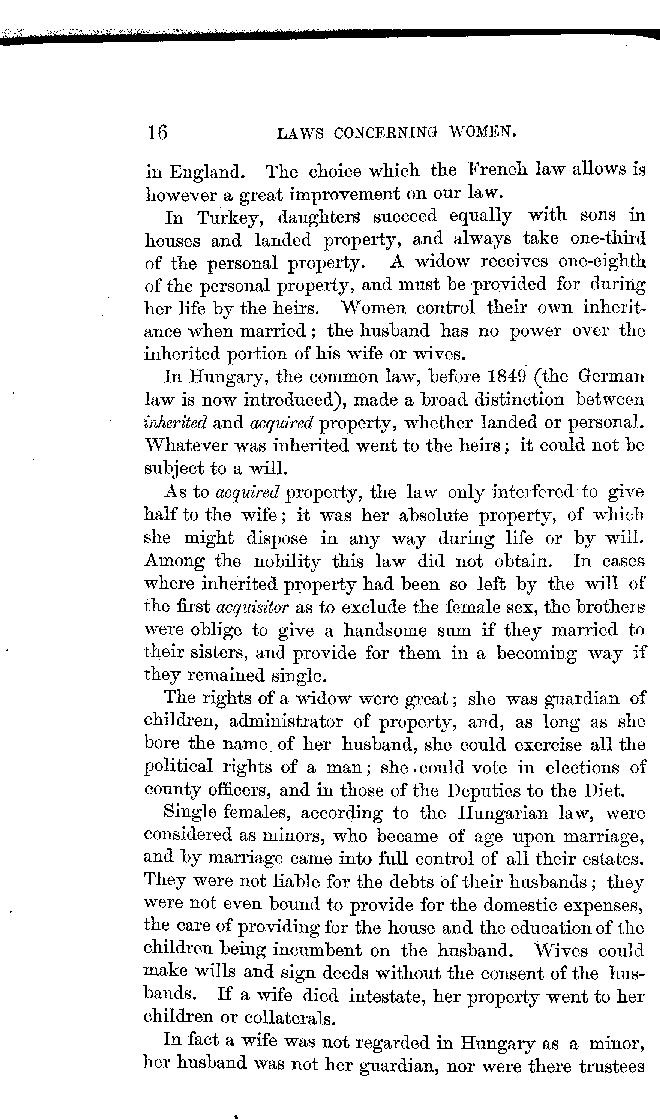in England. The choice which the French law allows is however a great improvement on our law.
In Turkey, daughters succeed equally with sons in houses and landed property, and always take one-third of the personal property. A widow receives one-eighth of the personal property, and must be provided for during her life by the heirs. Women control their own inheritance when married; the husband has no power over the inherited portion of his wife or wives.
In Hungary, the common law, before 1849 (the German law is now introduced), made a broad distinction between inherited and acquired property, whether landed or personal. Whatever was inherited went to the heirs; it could not be subject to a will.
As to acquired property, the law only interfered to give half to the wife; it was her absolute property, of which she might dispose in any way during life or by will. Among the nobility this law did not obtain. In cases where inherited property had been so left by the will of the first acquisitor as to exclude the female sex, the brothers were oblige to give a handsome sum if they married to their sisters, and provide for them in a becoming way if they remained single.
The rights of a widow were great; she was guardian of children, administrator of property, and, as long as she bore the name of her husband, she could exercise all the political rights of a man; she could vote in elections of county officers, and in those of the Deputies to the Diet.
Single females, according to the Hungarian law, were considered as minors, who became of age upon marriage, and by marriage came into full control of all their estates. They were not liable for the debts of their husbands; they were not even bound to provide for the domestic expenses, the care of providing for the house and the education of the children being incumbent on the husband. Wives could make wills and sign deeds without the consent of the husbands. If a wife died intestate, her property went to her children or collaterals.
In fact a wife was not regarded in Hungary as a minor, her husband was not her guardian, nor were there trustees